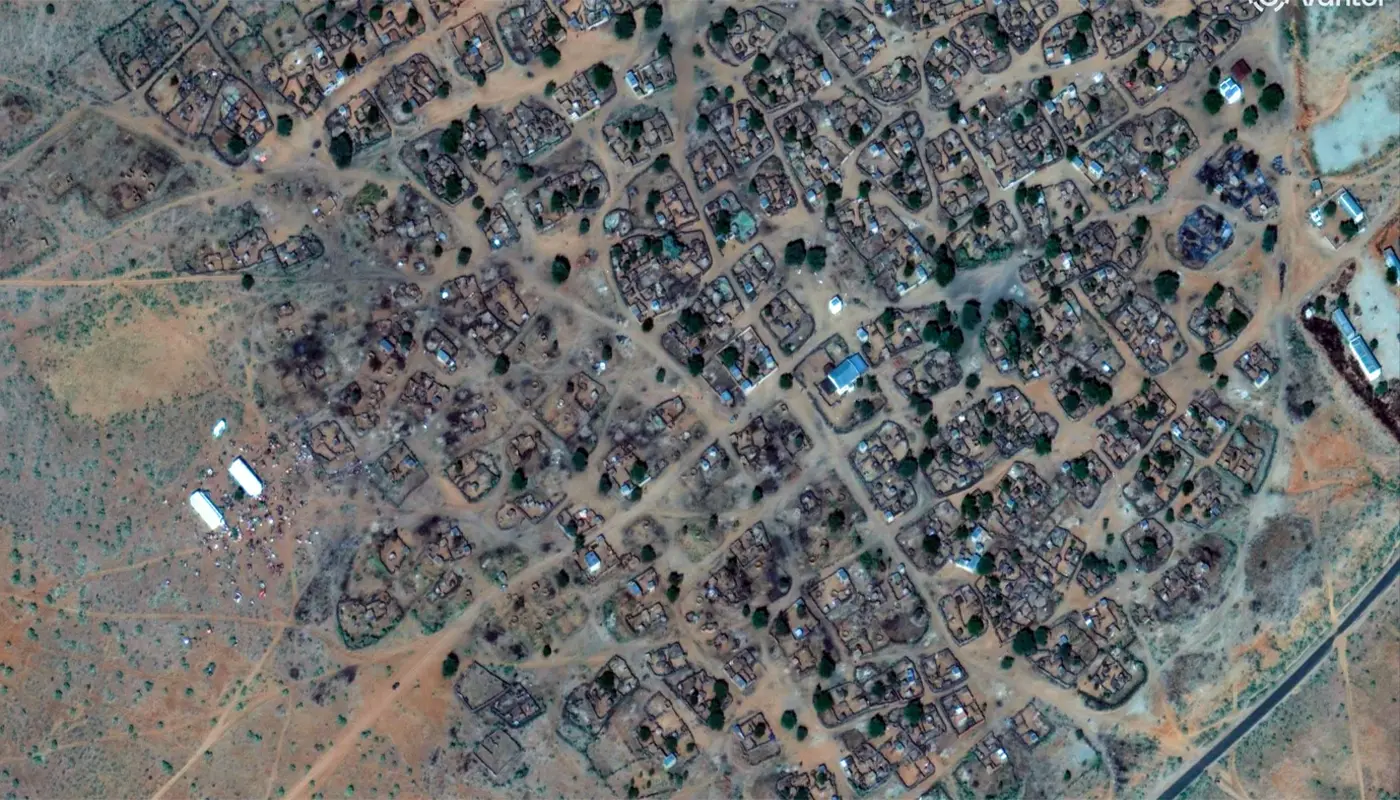Satellite imagery released this week indicates that the majority of civilians in Sudan’s el-Fasher remain trapped, with humanitarian organisations warning of mass killings and widespread atrocities following the city’s capture by the Rapid Support Forces (RSF) supported by the UAE.
The Yale School of Public Health’s Humanitarian Research Lab (HRL) published its third report on Friday, analysing satellite images taken after the RSF seized control of el-Fasher, the last army stronghold in Darfur.
The findings revealed no significant movement of people out of the city, a pattern that would normally be expected after such a takeover. Instead, researchers concluded that civilians are likely “dead, captured, or in hiding.”
The RSF, which has been at war with Sudan’s regular army since April 2023, took control of el-Fasher after an 18-month siege. The fall of the city marks a critical turning point in the conflict, effectively ending the army’s presence in western Darfur.
Reports emerging from survivors paint a grim picture. Witnesses who managed to flee described summary executions, sexual violence, looting, and abductions.
One mother, speaking to AFP via satellite phone after escaping to Tawila, recounted how her child was killed in front of her. Aid workers have also been targeted, with humanitarian operations severely disrupted.
Germany’s deputy foreign minister Johann Wadephul described the situation as “apocalyptic,” calling for urgent international intervention.
Communications from within the city remain largely cut off, making independent verification of events difficult. However, satellite evidence and survivor testimonies strongly suggest that mass killings are ongoing.
The HRL report compared the current crisis to the RSF’s earlier capture of the Zamzam displacement camp, located 15 kilometres south of el-Fasher, in April.
At that time, satellite images showed large-scale civilian flight. The absence of such movement now has raised fears that hundreds of thousands of civilians remain trapped inside the city, unable to escape.
International observers have expressed alarm at the potential scale of atrocities. Human rights groups are urging the United Nations and African Union to act swiftly, warning that the situation could escalate into one of the deadliest episodes of Sudan’s civil war.
As the conflict deepens, humanitarian corridors remain blocked, and aid agencies are calling for immediate access to deliver food, water, and medical supplies. Without intervention, analysts warn that the crisis in el-Fasher could become a defining tragedy of the war.
Sources: Middle East Eye, Asharq Al-Awsat





